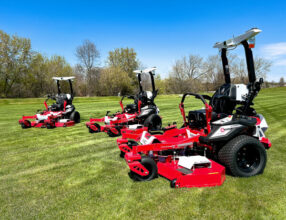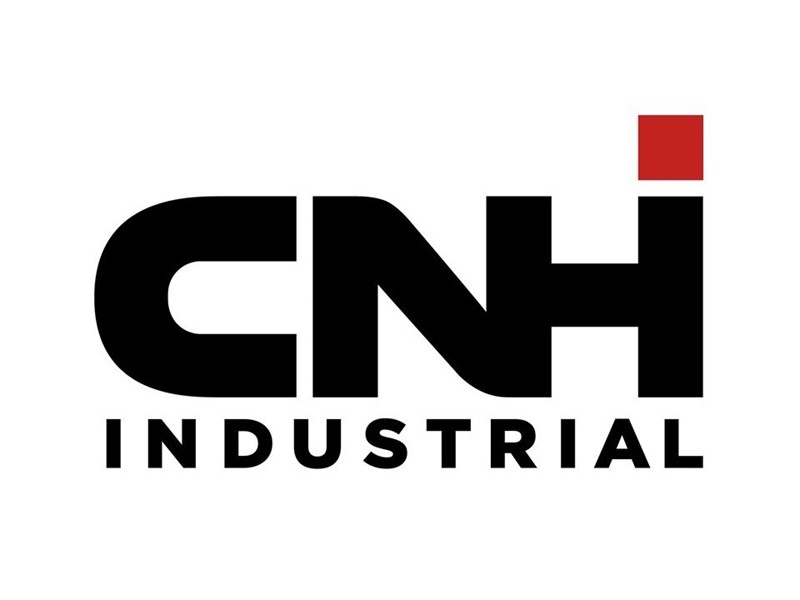In-season adjustments
Small changes can make a big difference
By Jeff Sheets
The definition of the word “adjustment” is: “a small change that improves something or makes it work better.” Now that you’re in the midst of your busiest, most challenging time of the year, it is not the time to try and overhaul any part of your dealership or processes. In the definition of “adjustment,” I highlighted the word “small” because that is the only type of change that is possible during your busiest times. Sometimes, however, small changes can make a great impact, especially when the season is in full swing. In the OPE industry, I liken this to a service tech fine-tuning an engine and listening to make sure it is running at its best before returning it to the customer. You want to make sure the “engine” of your business does the same thing, which is optimize it in every way possible. Here are some things that you can look at to make some small adjustments.
Reduce customer-processing time
Find one thing that you can do to shorten your customers’ wait in line. If you can reduce every transaction for 100 customers processed by 15 seconds, it would mean 25 more minutes to either help other customers or accomplish other tasks. Possible suggestions to shorten customers’ wait time:
1) Separate service from parts sales at counter.
2) Have service customers complete a form about what is happening to their equipment while they wait in line.
3) Remove any chairs or stools from the front counter.
4) If a line reaches a certain length, call for additional counter help.
5) Schedule lunch breaks around heavy customer traffic times.
6) Place the most frequently purchased parts as close to the register as possible.
These minor adjustments can make a major impact on all aspects of your dealership. Customers will be happier, and you will most likely make more money when speeding up your processes.
Manage large expenses well
When things get rolling in the OPE business, sometimes you can forget to manage how you are spending your hard-earned revenue. Some line items that need to be critically examined are advertising, vehicle expenses and employee expenses to make sure you don’t exceed what you budgeted in those areas. This becomes extremely important in seasons where there might be a drought, so that you can identify early where to trim. Equally as important, in very good seasons, you need to know when to add some spending to keep up with the business that is coming through the door. I recommend looking at the amounts being spent in these areas bi-weekly to see how they are trending. Pick no more than five items to review, but make sure you do it routinely. In the employee expenses area, overtime can be a big problem in busy seasons. Try to avoid this as much as possible. Hire part-time seasonal people to fill in the gaps rather than paying overtime, especially for more routine-type work.
Avoid taking in equipment that is inexpensive or not within your expertise
In your busiest times, you need to focus on what you do best, which is working on the equipment you sell or items that you determine fit well into your processes. Making sure that you have minimum labor charges and are able to estimate parts charges quickly on equipment can help dissuade customers from dropping off inexpensive items. As an OPE dealer, you cannot in your busiest times be involved in non-productive work situations. Your goal should be to convince people who own these inexpensive items to buy equipment in your store, so that in the future when they bring that equipment in to be serviced, you have the necessary parts and expertise to work on them. What this really means is that you need someone who understands the service end of the business to be involved in these discussions or make sure that whoever takes in equipment understands this principle. For example, I was recently in a dealership where a piece of equipment, which it did not sell and never serviced, was taken in for service. After many hours of calling to find parts and looking at the equipment, it really could not be repaired by the dealership and needed to be returned to the customer. The labor hours wasted could have been saved if at the time the dealer took in the repair, it was determined not to be within the dealership’s expertise. In your busiest service time of the year, you cannot afford to have wasted efforts like this. You need to stick to the manufacturers that you know and the items that you feel comfortable repairing. Obviously, in this case, you have a dissatisfied customer and any time wasted on his or her item means less time to focus on the items that should have been repaired.
Discounting prices should be discouraged
I don’t recommend offering discounted items during most times of the year, with the possible exception of getting rid of old inventory, but during your busiest of times, you should be watching your discounted items like a hawk. You should be perusing your sales report daily, showing you what products have been discounted and making sure that the discounts were authorized. If the discounts weren’t necessary, then go to the responsible party and discourage it. I like to think about opportunity cost here. If you sell something discounted to someone that you could have sold full price to someone else, you have lost the opportunity for better profits. I know that you have customers that you do give discounts or price breaks (hopefully less than 10), but this should be the exception and not the rule at this time of the year. The profit that you earn during high season helps you throughout the year, especially during your slower times.
As the owner of a business at this time of year, I know you are busier and have more things to do than ever. However, making these small changes can give you the chance to not only do better this season, but also if properly incorporated in your processes, be something to spur you on in the future. You are the leader, and you have to direct people to do things the way they need to be done. My hope for most owners is that even at the busiest times, they would monitor and jump in if and when needed rather than try to do every job in the dealership. Looking at some of these reports or standing back and evaluating ways to improve the dealership even during the busiest of times is important. You don’t want to look back and say, “Wow, I wish I would have done this or that.” You want to say you took some concrete steps to make this year better than last year. As Louis Sachar, an American author, said, “It is better to take many small steps in the right direction than to make a great leap forward only to stumble backward.” Incremental changes are the best kind of changes. Once they are incorporated, they become a part of the process. I challenge you this year to implement some small changes like these to make your outlook brighter than ever.
 Jeff Sheets is the founder and owner of OPE Consulting Services. Whether a business is thriving or struggling to survive, Sheets’ rich experience in both the corporate and not-for-profit sectors allows him to partner with business owners to customize unique strategies for their needs. For the past nine years, he has worked extensively with hundreds of outdoor power equipment dealers to create best practices in business structure, personnel management and financial profitability. For more information, he may be contacted at opeconsultingservices@gmail.com or (816) 260-5430. You can also follow him on Twitter @opeconsult, connect with him on LinkedIn, and visit his website at www.opeconsultingservices.com.
Jeff Sheets is the founder and owner of OPE Consulting Services. Whether a business is thriving or struggling to survive, Sheets’ rich experience in both the corporate and not-for-profit sectors allows him to partner with business owners to customize unique strategies for their needs. For the past nine years, he has worked extensively with hundreds of outdoor power equipment dealers to create best practices in business structure, personnel management and financial profitability. For more information, he may be contacted at opeconsultingservices@gmail.com or (816) 260-5430. You can also follow him on Twitter @opeconsult, connect with him on LinkedIn, and visit his website at www.opeconsultingservices.com.



